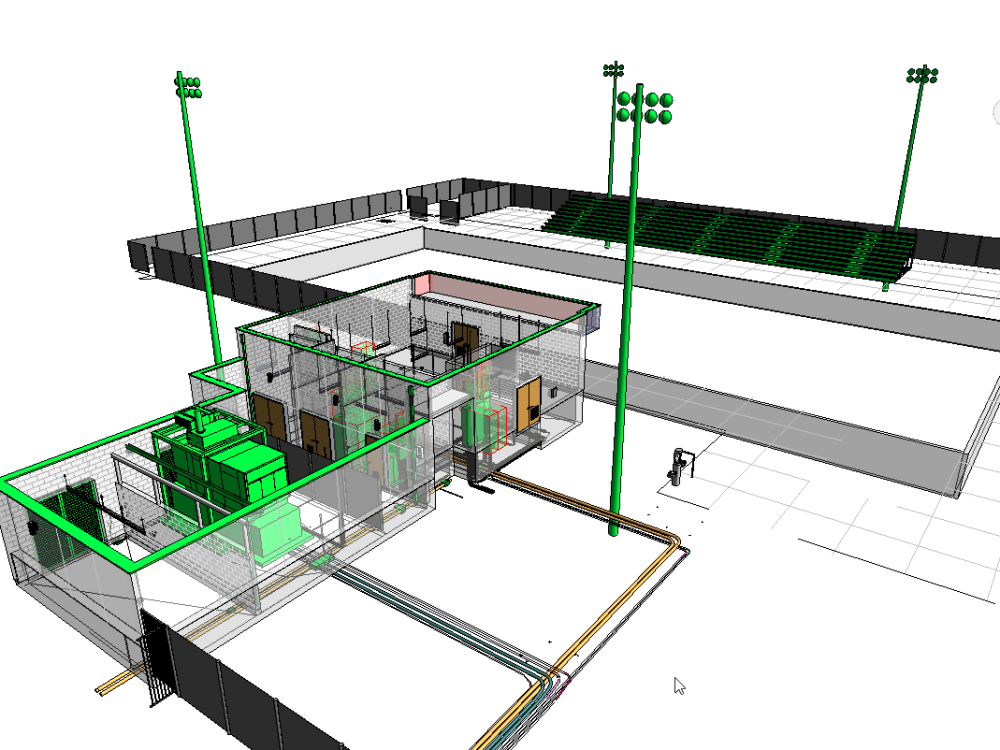
Electrical engineering continues to be one of the most impactful disciplines in the world of technology and infrastructure. As we progress through 2026, the opportunities for electrical engineers are broader and more exciting than ever before. The demand for skilled professionals is growing rapidly, especially in areas such as energy systems, automation, smart buildings, and integrated construction design using advanced tools like BIM MEP software.
To begin with, what is electrical engineering? In simple terms, it is the study and application of electricity, electronics, and electromagnetism to develop solutions for real-world problems. Electrical engineers are instrumental in building everything from energy-efficient homes to high-speed transport systems. Today, the scope of this field has expanded to include smart building services, MEP systems, and digital modelling tools, creating fresh and rewarding career options after electrical engineering.
Popular Career Paths Offered to Electrical Engineers
Electrical engineers in 2026 are no longer limited to traditional roles. With advancements in smart infrastructure and digital construction technologies, new career paths have emerged, particularly in MEP engineering, BIM MEP, and sustainable systems. Below are some of the top roles, along with experience insights and electrical engineer salary expectations in India:

1. Power Systems Engineer
Responsible for designing, operating, and maintaining electrical power systems, including grids and renewable energy setups.
Salary Range: ₹4 – ₹9 LPA (Source: Glassdoor)
2. Automation & Control Engineer
Works with PLCs and automation technologies for industries such as manufacturing and robotics.
Salary Range: ₹4 – ₹9 LPA (Source: Glassdoor)
3. MEP BIM Electrical Engineering Project Specialist
Specialises in using BIM MEP software to design and manage MEP works in construction projects.
Salary Range: ₹5 – ₹12 LPA depending on experience (Source: Glassdoor)
4. Electrical Design Engineer (MEP Focus)
Focuses on electrical layouts and MEP design for commercial buildings and industrial infrastructure.
Salary Range: ₹4 – ₹8 LPA (Source: Glassdoor)
5. Sustainability & Renewable Energy Consultant
Advises on clean energy solutions for buildings and public infrastructure.
Salary Range: ₹10 – ₹22 LP (Source: Glassdoor)
6. Site Engineer – Electrical (Construction)
Oversees on-site MEP construction activities, ensuring compliance and project efficiency.
Salary Range: ₹3 – ₹9 LPA (Source: Glassdoor)
Salaries may vary depending on the candidate’s experience, certifications, and city of employment. However, one common trend is that professionals with specialised training in BIM MEP, MEP services, or MEP BIM modelling tend to command significantly higher compensation and more strategic roles within firms.
Also Read: Top 50 MEP Interview Questions & Answers 2026
Top Industries That Employ Electrical Engineers

Electrical engineers are needed across a wide variety of industries. Here are some of the most active employers:
-
Construction and Infrastructure Development – These roles especially involve MEP, meaning in construction, where electrical systems are integrated into building design and efficiency.
-
Real Estate and Smart Buildings – Electrical engineers help design intelligent, energy-efficient buildings using MEP systems and smart grid technologies.
-
Renewable Energy & Power Generation – Solar, wind, and hydro projects actively recruit for power and control engineers.
-
Manufacturing and Automation – Facilities rely heavily on automation systems designed by electrical engineers.
-
MEP Firms and Engineering Consultancies – These firms specialise in delivering MEP services and working on complex building projects that require coordinated efforts across electrical, mechanical, and plumbing systems.
-
Public Sector and Urban Planning – Focused on improving construction efficiency in MEP for government-led infrastructure initiatives.
Why Electrical Engineers Should Do MEP Course After Completing Engineering
The growing demand for sustainable and smart infrastructure has increased the need for professionals skilled in MEP engineering. For electrical engineers, understanding how MEP works in construction is no longer optional; it is essential. That is where an industry-aligned MEP course can make a significant difference.
Let us briefly explore the MEP meaning in construction. MEP stands for Mechanical, Electrical, and Plumbing — the trio of services responsible for bringing buildings to life. These systems control everything from air conditioning to lighting, water supply, fire safety, and building automation.
By enrolling in a comprehensive MEP course, electrical engineers gain:
-
Advanced Technical Skills in MEP BIM modelling, energy simulation, and BIM MEP coordination.
-
Improved Employability in the core infrastructure and construction sectors.
-
Hands-on Experience using industry-grade BIM MEP software tools.
-
Access to Lucrative Global Roles in MEP firms and consultancies.
One of the most reputable platforms offering specialised MEP training is Novatr. Their flagship MEP course is explicitly designed for engineering graduates who want to become future-ready.
Also Read: Major Projects Built on BIM MEP in India
Why Choose Novatr?
Novatr stands out as a future-focused platform designed to equip engineers with cutting-edge industry skills. Here are the key USPs that make their MEP course an ideal choice for electrical engineers:
-
BIM-Centric Curriculum – Learn to use industry-standard BIM MEP software and understand modern workflows followed in top MEP firms.
-
Project-Based Learning – Gain hands-on experience by working on real-world MEP building projects that mirror industry challenges.
-
Expert Mentorship – Get guidance from experienced professionals actively working on global MEP construction projects.
-
Career Support – Receive personalised career assistance, including interview preparation, CV enhancement, and job referrals.
-
Collaborative Learning Environment – Engage with a vibrant community of peers, mentors, and industry experts.
-
Focus on Construction Efficiency – Understand how to improve construction efficiency in MEP systems through integrated design strategies.
-
Global Industry Relevance—The course is designed to meet Indian and international market demands for MEP BIM services.
Conclusion
The journey after engineering is filled with possibilities, and in 2026, there is no shortage of exciting career options after electrical engineering. The key is to keep learning, keep evolving, and embrace the changes in technology and construction practices. Whether you are fascinated by green energy, smart cities, or cutting-edge MEP systems, now is the time to specialise. With the right skills in BIM MEP, MEP design, and MEP BIM modelling, your future as an electrical engineer looks more electrifying than ever.
Among the best options, the BIM Professional Program for MEP Engineers by Novatr stands out the most. For the latest updates, tools, and insights into the MEP and BIM industry, explore Novatr's Resource Page.
Also Read: BIM Mep Engineer vs Electrical Engineer Salary, Expertise & Skills
FAQs
Q1: What is the meaning of MEP in construction, and how does it relate to electrical engineering?
Ans: MEP meaning in construction refers to Mechanical, Electrical, and Plumbing services-essential components that bring buildings to life. Electrical engineers specifically focus on designing power supply, lighting, and control systems within this triad. With specialised training, engineers can contribute to MEP design, lead MEP works in construction, and drive innovation in building services through integrated digital solutions.
Q2: Why is MEP design important for electrical engineers in 2026?
Ans: MEP design is crucial for electrical engineers as it involves creating detailed electrical layouts that align with mechanical and plumbing systems in buildings. In 2026, construction projects will increasingly rely on smart integration, energy optimisation, and automation. Electrical engineers trained in MEP BIM modelling are better equipped to handle real-world challenges and contribute to the efficiency and sustainability of infrastructure.
Q3: What salary can electrical engineers expect after specialising in MEP services in India?
Ans: Electrical engineers with MEP services specialisation in India can expect salaries ranging from ₹5 to ₹12 LPA, depending on experience and project complexity. Roles that involve BIM MEP, project coordination, and energy efficiency deliver higher compensation. Engineers trained in platforms like Novatr often command premium packages due to their hands-on skills and project exposure.
Was this content helpful to you



.jpeg)



